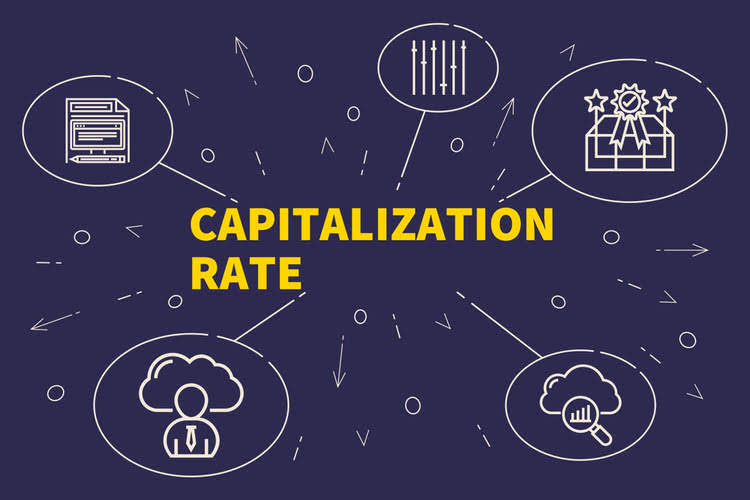What does FICA mean? Tax rate and your paycheck, explained

Their earnings are capped at $176,100 in 2025 — just like FICA. Any gross wages above this amount are Suspense Account not subject to Social Security tax. The current FUTA tax rate is 6% of the first $7,000 a business pays to an employee each year. Enterprises and larger employers can expect to pay more FUTA taxes, though their rate per worker won’t change. Employers must withhold the employees’ share of FICA taxes and the employer’s portion.

Possible matching categories:

Get familiar with the basics of FICA withholding, including how much you can expect to pay in FICA taxes. Self-employed individuals, including freelancers and independent contractors, pay both the employee and employer portions of FICA taxes. This results in a combined rate of 15.3%—12.4% for Social Security and 2.9% for Medicare—applied to net earnings. As of 2024, the Social Security tax rate is 6.2% for employees and 6.2% for employers, with a taxable wage cap of $168,600. Earnings beyond this amount are not subject to Social Security tax. The self-employment tax is reported on Schedule SE along with your income tax returns.
At What Income Level Does the FICA Medicare Tax Increase?
The benefits you’ll eventually receive from these programs are considered earned benefits because you have contributed to them through FICA. In addition to the standard Medicare tax of 1.45%, an extra 0.9% surtax applies to high earners. Specifically, this additional Medicare tax kicks in for those with earnings exceeding $200,000 for single filers or $250,000 for joint filers.
Example 2: Employee Earning $300,000
It’s noteworthy that these annual limits are adjusted periodically based on the National Average Wage Index to accommodate for inflation and other economic factors. Employers must stay updated on these annual limits, as failure to adhere to the current thresholds could result in financial penalties. Both are important federal payroll taxes that fund key government programs. FICA stands for Federal Insurance Contributions Act and funds Social Security and Medicare, providing benefits to retirees, people with disabilities, and those needing healthcare.
- The federal tax was created to provide money for retirement for elderly and retired citizens.
- An employer withholds 6.2% of an employee’s paycheck for Social Security and 1.45% for Medicare—up to certain income limits—adding up to a total FICA tax of 7.65%.
- For those who work for themselves, there are self-employment taxes.
- The share employees contribute each time they receive their check stub helps these people and anyone who qualifies to receive medical care.
- The more tax deductions and credits you claim, the less money your employer will withhold from your paycheck.
Group health insurance offered under a qualified section 125 cafeteria plan may be exempt from FICA taxes. Participating employees will see a reduction in their taxable wages because their contributions to the plan are made pretax. This provision reduces the FICA tax liability for employers, as well. FICA requires employers to withhold 6.2% Social Security tax and 1.45% Medicare tax from an employee’s FICA taxable wages.
- You can use this comprehensive resource to verify the SUTA rates of states relevant to your employees and comply with confidence.
- Paying FICA taxes earns you credits toward your Social Security coverage.
- There are a few exceptions related to Social Security and Medicare.
- Even if the combined salary you receive exceeds the Social Security wage base limit, it is still subject to FICA deduction on a paystub.
- Understanding what it is, how it works, and what your responsibilities are can help you stay compliant and avoid costly mistakes.
- As of 2023, this rate is 6.2% for Social Security and 1.45% for Medicare from both the employer and the employee, making it a combined contribution rate of 15.3%.
If the employer reports less than $50,000 in taxes the previous quarter, they should monthly file the FICA taxes. This means that when depositing monthly to the IRS, the amounts are due by the 15th of the month of the following payroll. The deposits are reported through Form 941, a quarterly payroll tax report given to the Internal Revenue fica meaning Service (IRS) and sent using the Electronic Federal Tax Payments System (EFTPS). Additionally, all new businesses have to start depositing monthly.

- As per law, FICA taxes are mandatory employment taxes that an employer needs to calculate and withhold in each employee’s payroll.
- You must be at least 18 years of age to become a Retirable Premium user.
- 6.2% of an employee’s FICA taxable wages go to Social Security tax and 1.45% of their FICA taxable wages go to Medicare tax.
- If an employer does not withhold enough, the remaining amount must be paid when filing a tax return.
- No testimonial should be considered a promise, guarantee, or prediction of the outcome of your case.
- Plus, employers that pay their federal and state unemployment taxes in full may have the opportunity to earn a tax credit worth up to 5.4% of their FUTA taxable wages.
- This provision reduces the FICA tax liability for employers, as well.
When she’s not writing, you can find her reading or out on a hike. After Tax deduction are deductions taken out after tax is calculated. Retirable, Inc. (‘Retirable’) is an SEC registered investment advisor. By using this website, you accept our Terms and Conditions and Privacy Policy.
Do employers have to match FICA rates?
The remainder is transferred to the federal government’s Medicare trust to cover medical expenses for individuals aged 65 and older or those who qualify for disability benefits. This table outlines the percentage of FICA and separates what the employer pays vs. what the employee pays. You can get a refund if your Social Security taxes were withheld in error from exempt pay.
Unlike the regular Medicare Tax, this surtax is only paid by the cash flow employee. Employers are responsible for withholding it once the threshold is crossed, but they do not match it. Understanding this historical context underscores the importance of FICA not just as a tax, but as a long-standing social contract between American workers, employers, and the federal government. We’ve already explored FUTA, which plays a vital role in the unemployment insurance system at the federal level.
